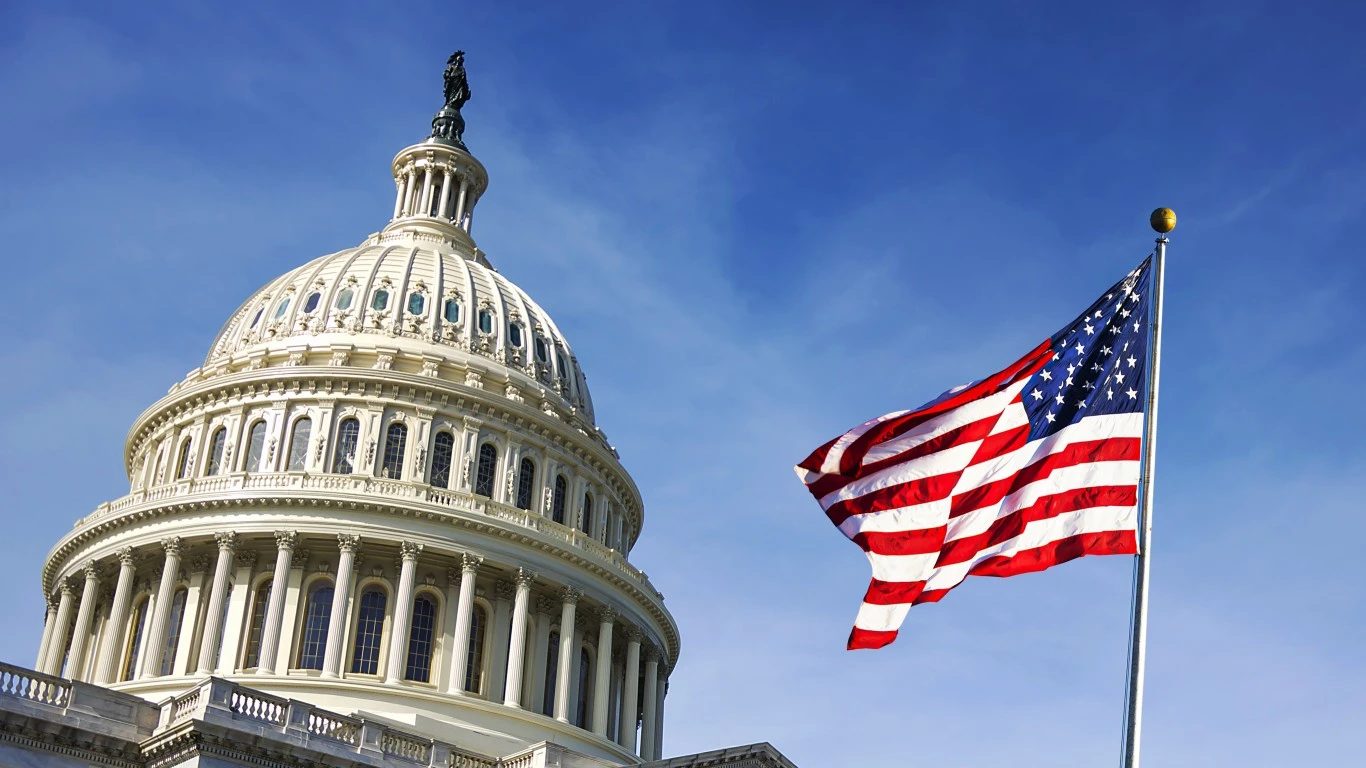
It’s long been a fact that lobbyists are out to schmooze different politicians based on the platform they’re trying to push. Liberals usually prefer democratic candidates, and conservatives like Republican candidates, but regardless of who they pick, the one thing they have in common is money. All lobbyists pay for favors from political contenders, often fundraising thousands of dollars for campaigns of those they’re trying to woo.
Dollars and Crypto
When cryptocurrencies like Bitcoin and Etherium came along, the world of finance proliferated. And now, the small and large business sectors are quick to accept both Bitcoin and Etherium and several smaller cryptocurrencies instead of U.S. dollars.
The newest customer on the market for cryptocurrency is none other than Washington D.C.
Since the beginning of the 2020 election cycle, large crypto investors have poured millions worth of cryptocurrency into campaigns and candidates to lobby for or against the legislation. The actual amount is somewhere in the ballpark of $30 million and is likely to explode as we head into the next Presidential election cycle in 2023.
Who, What, Why
Everyone knows what lobbying is. Large companies and corporations pay obscene amounts of money to political backers and campaigns to either support or fight legislation that would positively or negatively impact their bottom line.
Companies like Google, Apple, Amazon, Facebook (Meta), and Microsoft are among the tech giants who spent millions in 2021 to lobby for or against bills that would impact their fiscal policies.
Out of those, Amazon and Meta, the owner of Facebook, were the big spenders, each pulling more than $20 million to lobby Congress and the federal government in 2021.
Their main goal was to stop the American Innovation and Choice Online Act. This bill would block tech companies from giving preference to their own companies or products. It would also negate their ability to discriminate against their competitors and products on their platforms.
While Meta and Amazon deployed lobbyists to counter the bill in Congress, Apple and Google CEOs Tim Cook and Sundar Pichai met with Senators personally to ask them to oppose the bill.
Lobbying Doesn’t Stop at the Doors of Congress
Lobbying doesn’t stop at Capital Hill either. Meta, threatened by TikTok’s rise, shelled out considerable money to run a smear campaign against the Chinese-owned social platform. TikTok has become one of the fastest-growing social sites of the last decade, something Facebook can’t compete with, even with Instagram on its roster. The rumor mill and anti-TikTok campaign included:
- Highlighting TikTok as a dangerous foreign-owned app that collects and shares personal data on American teens.
- Pushing stories that tied TikTok to destructive teen behavior, like the “devious licks” challenge that saw teens stealing toilets and vandalizing schools.
- Spreading rumors that TikTok was the origin of a “Slap a Teacher” challenge, which later turned out to be created first on Facebook.
While most corporations stick to lobbying in Washington, it’s no surprise that a company as large as Meta would seek to bring TikTok under its proverbial thumb if it could manage it.
Crypto Brings New Players
While lobbying has undoubtedly changed over the last several decades and now focuses more on what government can do for corporations, there are new players involved now that crypto is a worthy investment instead of keeping the government in the dark. But its volatility and openness to ransomware attacks leave some wondering if crypto should be the new currency in D.C.
“The explosive growth of the crypto industry must be matched by nimble, responsive, pro-growth laws and regulations, which do not get achieved without sustained engagement with members of Congress, regulatory agencies, and members of the administration,” said Kristin Smith, executive director of the Blockchain Association.
Smith isn’t the only one to battle for crypto’s regulatory clarity on Capital Hill. Other industry lobbyists are asking for the IRS to clarify how various cryptocurrencies are taxed. They’re also seeking more details from the Securities and Exchange Commission (SEC) on how cryptocurrencies can add new products into the market without violating securities laws.
Fred Ehrsam, the co-founder of Paradigm, pointed out that cryptocurrency can significantly impact economic growth. “We are focused on separating fact from perception in the crypto space through government and, more broadly, education resources, which is critical to helping regulators understand crypto’s ability to spur economic growth. One of CCI’s core principles is to work closely with policymakers to correct misinformation on cryptocurrency and discuss our common ground creating more financial opportunities for people worldwide.”
With little knowledge of how or why lobbying happens, it’s easy to make assumptions based on half-truths and misinformation. One great thing about cryptocurrency becoming a tool for lobbyists is that it opens the door for previously unheard voices to be heard loud and clear. Whether that will make any significant change remains to be seen.
Previously published at Wealth of Geeks.
Sponsored: Tips for Investing
A financial advisor can help you understand the advantages and disadvantages of investment properties. Finding a qualified financial advisor doesn’t have to be hard. SmartAsset’s free tool matches you with up to three financial advisors who serve your area, and you can interview your advisor matches at no cost to decide which one is right for you. If you’re ready to find an advisor who can help you achieve your financial goals, get started now.
Investing in real estate can diversify your portfolio. But expanding your horizons may add additional costs. If you’re an investor looking to minimize expenses, consider checking out online brokerages. They often offer low investment fees, helping you maximize your profit.






